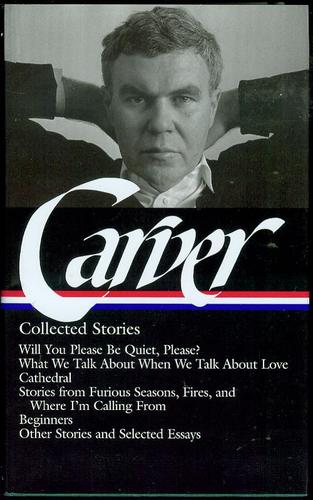
photo by Charlotte Tai
by Jack Tilley
Nobody reads enough.
You can never read too much.
You should read something every day.
Yes, yes, yes. I’ve always wanted, and tried, to read as much as I can. Read as many different writers, as many different styles, as many different stories. But when, after reading ‘Gazebo’ and a few others, I prescribed myself one story per day from The Library of America’s Carver: Collected Stories, I didn’t want to read any more.
It went something like this: ‘Fat’, ‘Neighbors’, ‘The Idea’, ‘They’re Not Your Husband’. Then I couldn’t take any more. After four days I couldn’t read another story. Not just another story, I couldn’t read another thing.
Of course, I hadn’t forgotten how to read. Rather, Carver had filled me to the brim. There wasn’t space for me to even think about one more written word. Because, by the fourth day, my mind was still filled as much with ‘Fat’ as it was with ‘They’re Not Your Husband’.
These four stories, totalling just twenty-four pages, each demanded more, and indeed gave me more, than anything I had ever read before. Carver gave me more in four pages of ‘The Idea’ than any writer had ever given me previously.
I don’t think writing had ever made me cry properly before Carver.
 What it is that gets me is his way in giving us the scope, inclination and courage to imagine the entire lives of the people he presents to us using so few words. We feel sure we know these people.
What it is that gets me is his way in giving us the scope, inclination and courage to imagine the entire lives of the people he presents to us using so few words. We feel sure we know these people.
What it is he seems to do is take all of the words of the most marvellous novel you can imagine and condense them. He takes away all the excess waffle and gives us exactly what this thing – this story, this relationship, this person’s life – is about. And this collection gives us this over and over and over.
But what I’m sure Carver doesn’t do is, he doesn’t steal the vastness of situations – of stories – from us. No. He loads every syllable of every word with a suggestiveness that assures us that what he’s given us is just one moment, a moment to see inside what makes this person’s life.
From the very beginning, we think we know their lives. From the very first line. From the title. Carver’s titles are stories themselves. They work at curious tangents that illuminate what it is he is trying to communicate.
‘Gazebo’ is perhaps the most curious of the titles. Since I first read ‘Gazebo’ – the story that hooked me on Carver – I have been trying to decide what it is I think he is trying to communicate. But I can’t decide. Yet, somehow, I just know this title works. It feels just right, and we don’t know why. It’s in my head. In that part full of things I’ve been thinking about recently, and it’s always been there even after the years that have passed since I first read the story. It’s never been packaged off to a storeroom in my brain where I usually put the stories I think I’ve made my mind up about. Likewise, I’ve never tired of thinking about GAZEBO.
What a word is GAZEBO?
What is it that’s GAZEBO?
If I hadn’t read another thing, ever again, after ‘Gazebo’, I am sure my mind could sustain itself on ‘Gazebo’ alone. Gazebo the word. ‘Gazebo’ the story. Gazebo the feeling.
‘Gazebo’, just one of dozens of stories.
Then there’s the likes of ‘Will You Please Be Quiet, Please’, ‘What We Talk About When We Talk About Love’ and ‘They’re Not Your Husband’, where Carver primes us with this voice from the very beginning. And we read and wait for when this title is going to become clear – not clear, no, but illuminating – and when that line comes – because you knew it would from the very moment you ![AUTHOR_Raymond Carver jpg 2[1]-4](https://www.thresholdsarchive.org.uk/wp-content/uploads/2010/09/Raymond-Carver-jpg-21-4.jpg) started reading – that’s it. That’s it. What is it that is that ‘thing’ that happens when you read the title of the story in the story and get that feeling? That ‘that’s it’ feeling? I don’t know what it is, but it’s exactly that something we read to find/feel. That’s why we read.
started reading – that’s it. That’s it. What is it that is that ‘thing’ that happens when you read the title of the story in the story and get that feeling? That ‘that’s it’ feeling? I don’t know what it is, but it’s exactly that something we read to find/feel. That’s why we read.
And doesn’t it seem great that we can get this time and again, story after story, in The Library of America’s Carver: Collected Stories?
But now I am frightened of Carver. I am frightened of this book. I’m frightened to read more because I can’t manage the first four stories of the collection. I can’t think about them all at once. I can’t unpack them and fantasise without time. I need time to think. But then I’m still frightened of Carver, even when I’ve had time. Suppose I’ve managed to think about the first four stories, but what will happen when I read the twentieth story? Because the more stories I read, the more curious I become about the stories I have already read. My curiosity does not subside, it intensifies. I am frightened of what will happen when I’ve read them all. Where will I find the mind space/time for them all?
I have read all of Carver’s stories. I have finished Carver: Collected Stories. And when I did finish, I decided that I would start from the very beginning again, and read one story every day, again. It’d surely be easier second time round. No. I stopped myself because if I did this – this one Carver story after another – I would spend the rest of my life unable to read anything else. When you start this collection, there isn’t the space for anything but it. This is a dangerous book.
Maybe we should read every day. Maybe we should read more. But if you open Carver: Collected Stories and read only one story, maybe that would be – if you wanted it be – enough to last you a lifetime.
~
Photo of Raymond Carver by Marion Ettlinger

